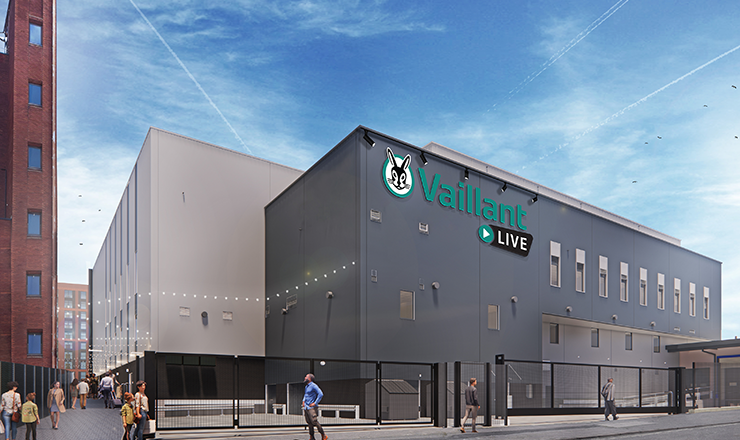
What’s in store for domestic heating?
What are the four key developments that we can expect to see in the boilers of the future? Mark Wilkins, technologies and training director at Vaillant offers a glimpse.
Enhanced connectivity
With just 13 per cent of UK homeowners in 2022 saying they did not own any smart home devices1, it is evident that the way people use and interact with appliances in the home is evolving and growing. Homeowners want appliances that are convenient and increase connectivity, in turn optimising performance, control and reducing energy usage.
For the heating industry, we expect to see further growth in heating solutions that provide connectivity as standard, giving homeowners more efficient ways to achieve comfort levels along with real-time insight on their system’s performance.
Connectivity will play a central role as people continue to invest in products and solutions that
can maximise energy efficiency and enhance comfort. Heating systems with weather and load compensation will be capable of further optimising energy efficiency, controlling the boiler’s output to reduce the flow temperature needed to reach desired comfort levels. This means the system will use less energy when compared with a traditional on/off heating control.
Intelligent diagnostics
We expect to see more boilers that feature additional onboard diagnostic functionality. Intelligent diagnostic capabilities further enhance system efficiencies, and a prime example is advanced sensors and control systems that monitor and adjust parameters, such as combustion and water temperature, to ensure optimal operation.
The same technology can be used to detect and diagnose any issues, alerting heating engineers to a problem, often before it happens. This will help prevent costly repairs, minimise downtime and increase product lifecycles. For heating engineers, this means they can offer an enhanced service package to customers, from remote diagnostics to energy efficiency optimisation, without compromising on comfort.
We expect to see gas engineers increasingly use real-time data to support planned service and maintenance tasks.
Increased flexibility
Boilers will need to be more flexible when it comes to fuels, depending on the customer and property’s requirements. Such flexibility will embrace being prepared for hydrogen as well as being able to run on LPG and natural gas – without the need for complex conversion processes. The boilers of the future will be able to convert to other fuels via the interface or controls.
Ease of installation
New products should be designed so that the replacement of a boiler is quick and seamless. Ease of installation will remain a key consideration for manufacturers, with constant development reviews and improvements. For example, making sure that integral components are within easy access can reduce the amount of time spent on maintenance, servicing and repair.
A future-proofing focus will include the integration of smart technologies and enhanced connectivity to deliver heating system products that people can use simply to optimise home comfort while being more energy efficient.
1 www.statista.com/forecasts/997845/smart-home-device-ownership-in-the-uk

